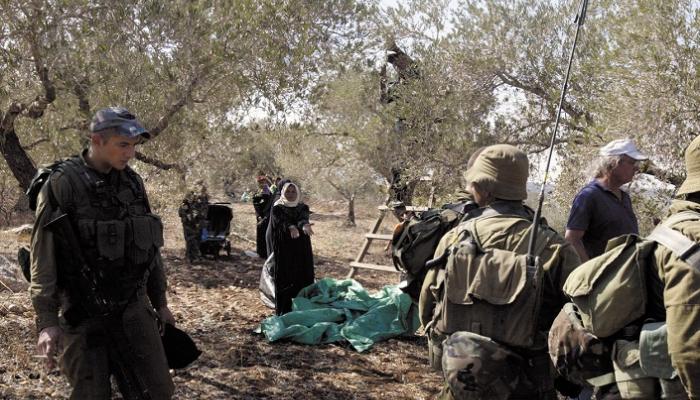Israeli settler violence and closure of gates for the Jewish holidays has disrupted the olive harvest season in the occupied West Bank, according to the biweekly report of the United Nations Office for the Coordination of Humanitarian Affairs (OCHA) in the occupied Palestinian territory
The olive harvest season, which began in early October and continues through November and which is a key economic, social and cultural event for Palestinians, was disrupted in a number of areas by Israeli settler violence, said OCHA in its report covering the first two weeks of October.
Incidents have included: the physical assault and injury of three Palestinian farmers in Tell and Jit, both in the Nablus district in the north of the West Bank, and al- Jab’a in the Bethlehem district in the south of the West Bank; the setting on fire to around 100 olive trees; and the stealing of produce in seven incidents in the villages of Kafr al-Dik in Salfit district and Burin in Nablus district.
Also, due to the Jewish holidays, the Israeli authorities postponed the opening of the West Bank Barrier gates in Tulkarm and Jenin until 23 October, disrupting farmers’ access to their lands for the olive harvest.
Another five settler attacks resulted in Palestinian injuries and property damage, it added. Four Palestinians, including one child and a woman were physically assaulted and injured by Israeli settlers in the Israeli-controlled area of Hebron city and in the Khirbet al Marajim community in the south of the West Bank, and over 20 vehicles and a few houses were vandalized in two incidents in Qira and Marda villages, both in Salfit district in north of West Bank, and two vehicles were stoned and damaged in another two separate incidents.
So far in 2019, OCHA recorded 243 incidents where Israeli settlers killed or injured Palestinians or damaged Palestinian property, an increase compared to the equivalent period of 2018 with 213 incidents, but almost double the figure for 2017 with 124 incidents recorded.
In addition, OCHA said that the number of structures Israel has demolished so far this year across the West Bank represents an almost 40 per cent increase compared with the equivalent period of 2018.
It said that citing the lack of Israeli-issued building permits, which are often impossible to get, the Israeli authorities demolished during the reporting period or forced people to demolish 31 structures in Area C of the occupied West Bank under full Israeli military rule, and in East Jerusalem, displacing 52 people and affecting 98 others.
The largest incident took place in Jabal al Mukabbir neighborhood in East Jerusalem, where 13 structures, including a home, were targeted; representatives of the affected families reported that they received no demolition orders or prior notice.
Also in East Jerusalem, in the Beit Hanina neighborhood, Palestinians were forced to self-demolish three residential buildings, resulting in the displacement of six refugees families; over one quarter of this year’s demolitions in East Jerusalem (46 of 173 structures) were carried out by the Palestinian owners, mainly to avoid paying the municipality the cost of the demolition.
One of the eleven structures demolished in Area C was a donor-funded solar panel provided as humanitarian assistance in response to a previous demolition in the community of Shib al Harathat in Hebron district.



